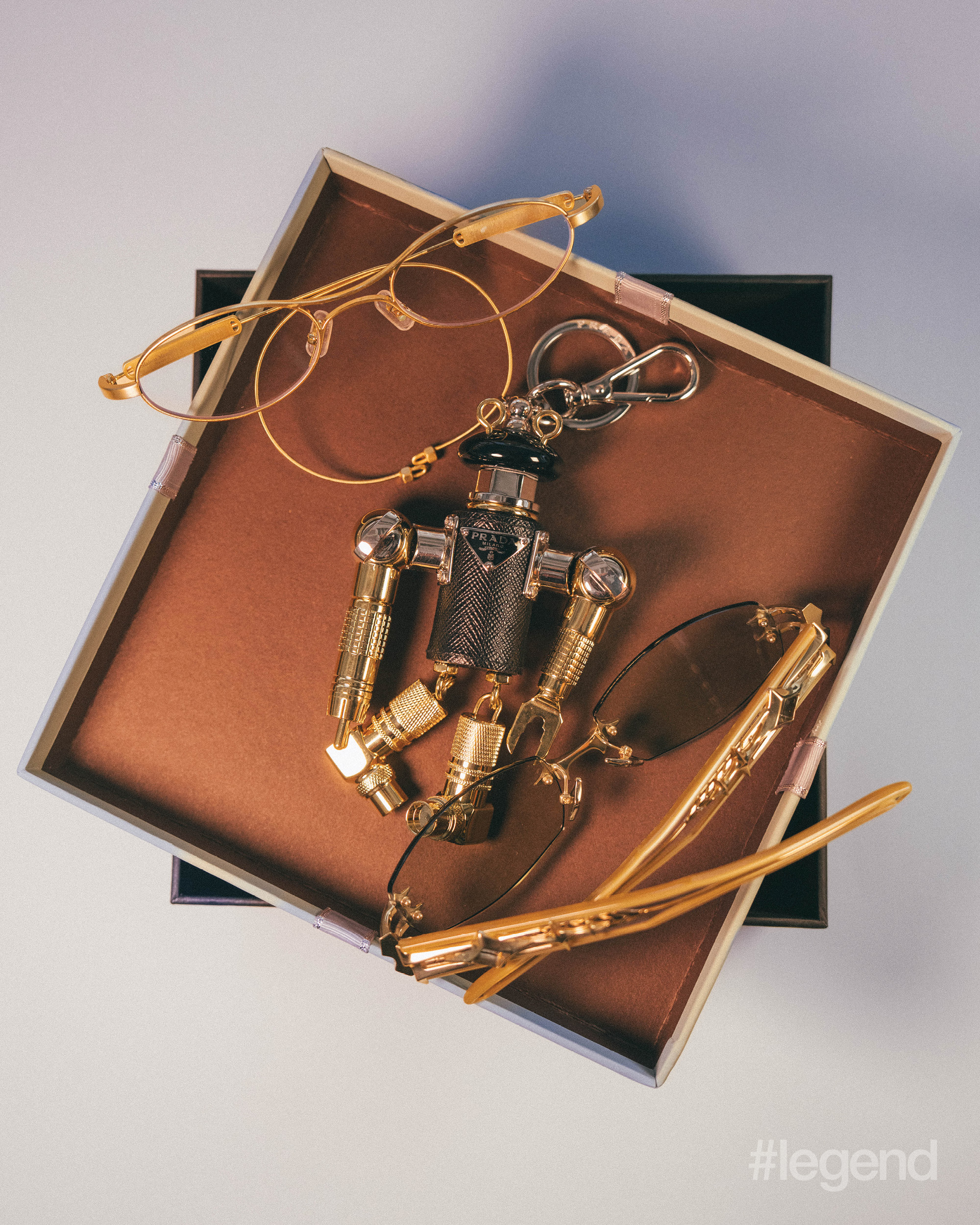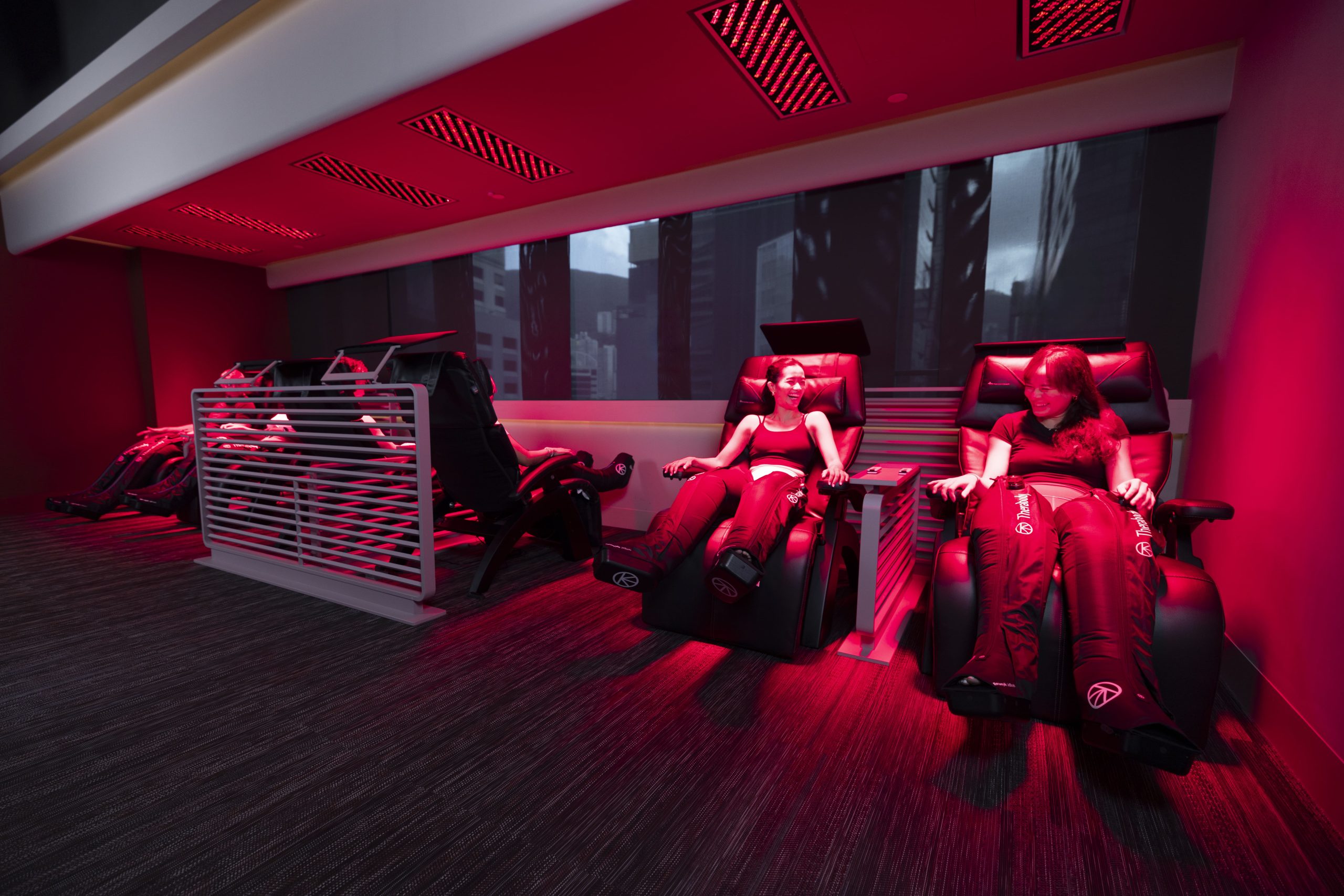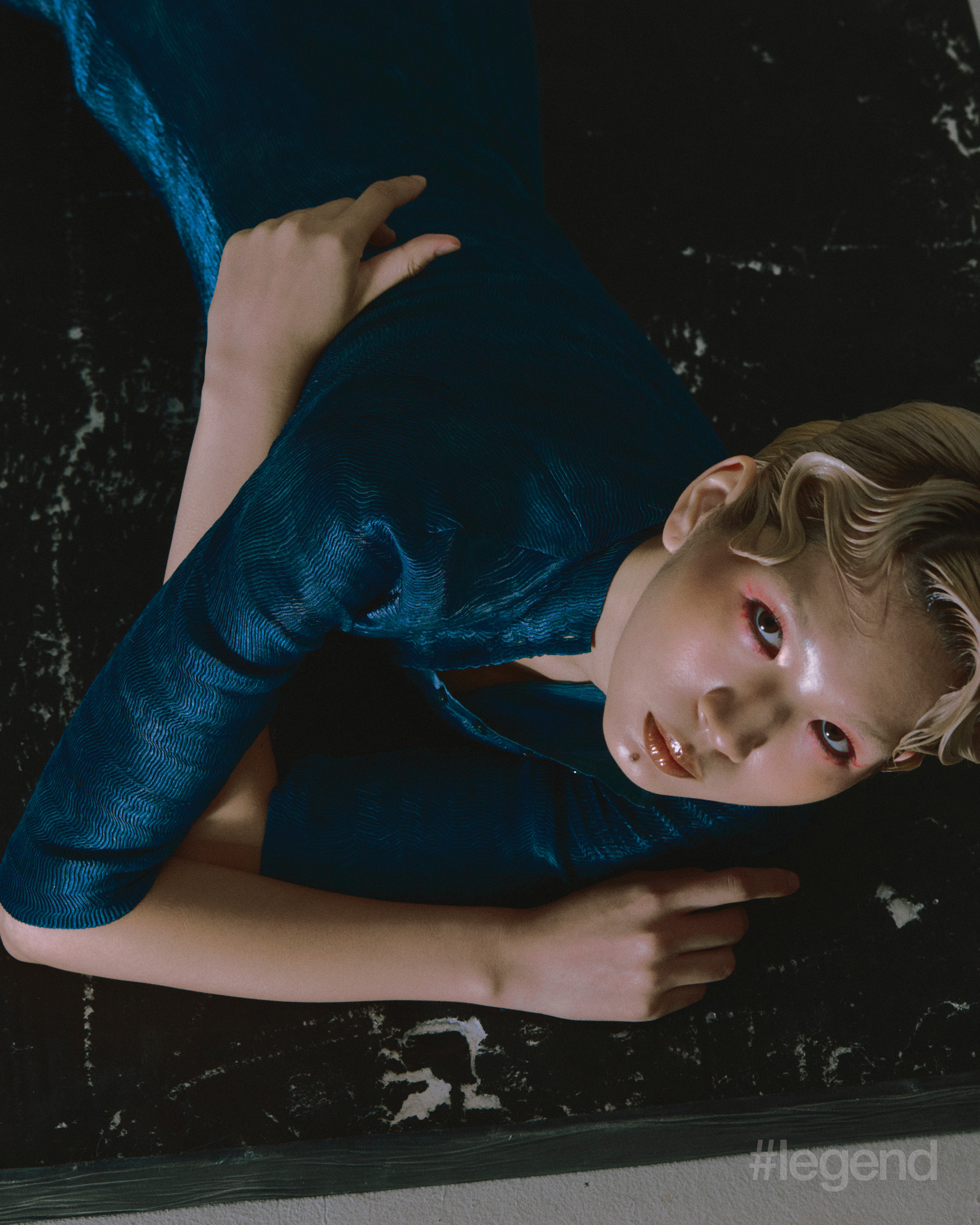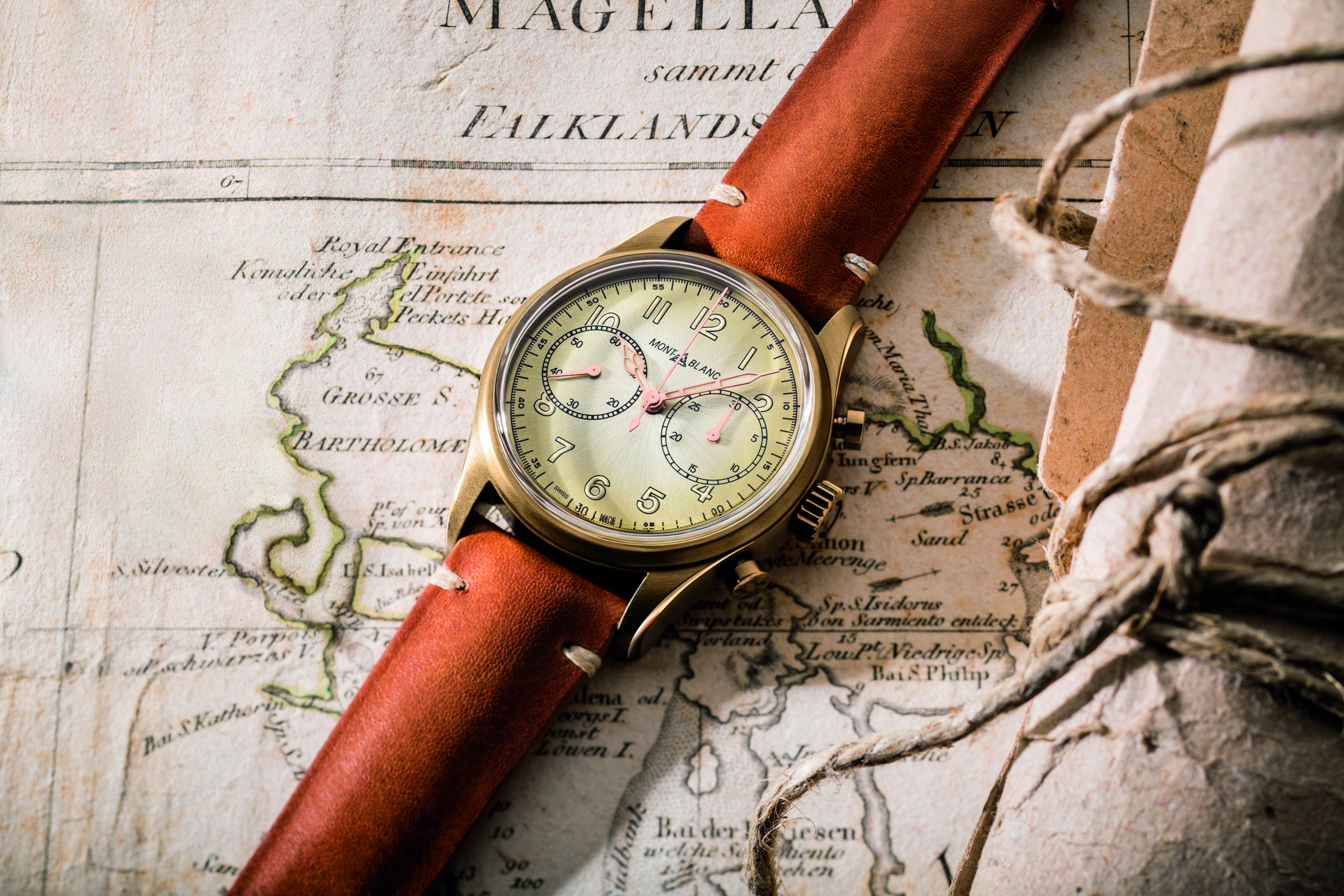
“i was one of the people responsible for the explosion of vintage watches.” This bold pronouncement came from the mouth of Davide Cerrato, the managing director of Montblanc’s watch division, and he was referring to his previous stint at Tudor, where he had a major hand in helping bring the brand out of Rolex’s shadow. “I did the first very strong heritage watch nine years ago when I was working for Tudor before anyone else did,” he says. “It was very funny because I remember at that time, people were saying, ‘Ah, it’s beautiful but it’s a short-term trend. One year, maximum two years, and it’ll be over.’ As you can see, nine years later, vintage is more relevant than ever.”
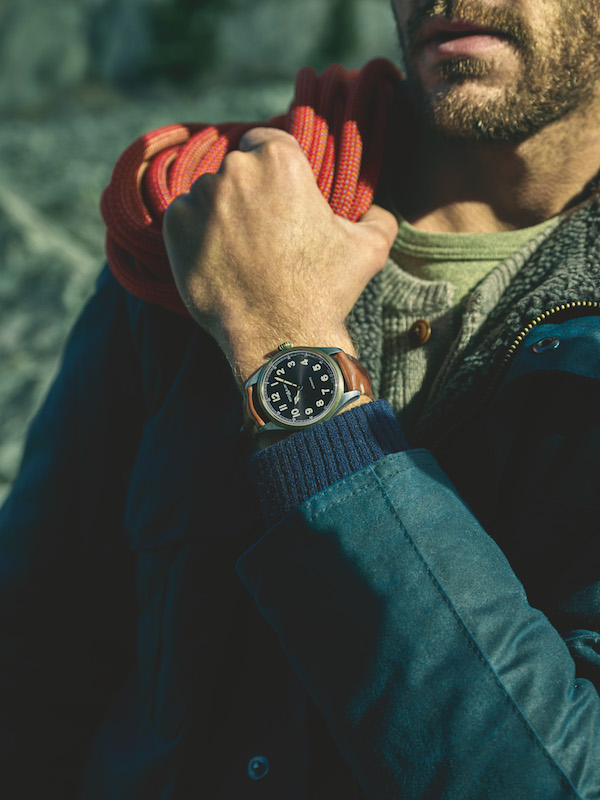
This year is really looking to be Montblanc’s standout year, judging from the novelties showcased at SIHH. The brand’s watchmaking division is relatively young but reputable, due to the fact that the brand acquired the storied Minerva manufacture in 2007. Located in Villeret, it has an extremely rich heritage that dates back 160 years and is especially important in the development of chronographs, but its narrative was largely missing from Montblanc’s previous collections. However, this year is different. With Cerrato at the helm, the brand has put all its efforts into highlighting its links with the manufacture – celebrating its 160 years of legacy – and revealing exceptional timepieces in the 1858 collection.“Minerva is a unique Swiss company with a very rich history,” explains Cerrato.
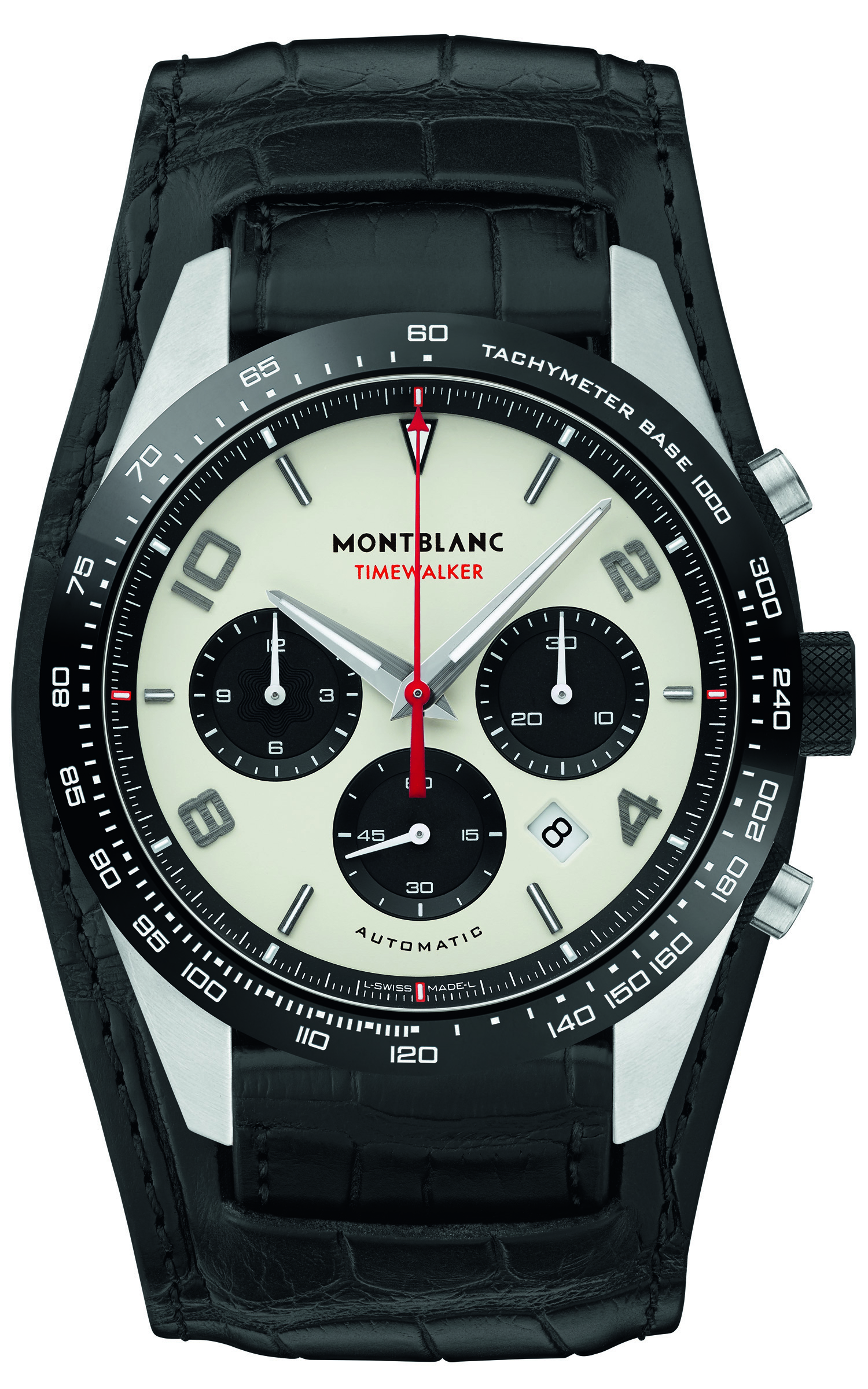
“IWC is celebrating its 150th anniversary, but Minerva is celebrating its 160th, to give you a bit of perspective on the richness of it. The brand was a bit lost after the Second World War, so it became very rare and was an interesting point for collectors. And now, in reviving the brand, it’s like you have a fire that’s almost exhausted and you still have the embers. We only need to breathe on it and immediately the fire will catch on.”Indeed, the Montblanc 1858 Collection was one of the best-received collections at the January watch fair. Inspired by the legendary professional Minerva watches from the 1920s and ’30s that were then used for military and mountain expeditions, the 1858 timepieces have a robust and retro design that makes them extremely appealing. The collection is made up of five distinct models, including a 40mm automatic watch, a 42mm chronograph, a 42mm Geosphere with a brand-new manufacture WorldTime complication, a 40mm monopusher chronograph wristwatch and a multipurpose pocket watch that’s also equipped with a compass. “There are two big complications that were developed at Minerva,” explains Cerrato. “One is the exo-tourbillon; it’s a very particular take on the tourbillon, with the oscillating weight that is coming out of the cage. The tourbillon uses less energy and it’s more precise with the number of executions. The second part is the monopusher, which is again quite rare.” Minerva invented one of the first manually wound monopusher chronographs for wristwatches in the 1920s, made possible due to the smaller size of the calibre 13.20, the movement used in the first monopusher, which also featured Minerva’s iconic V-shaped bridge.
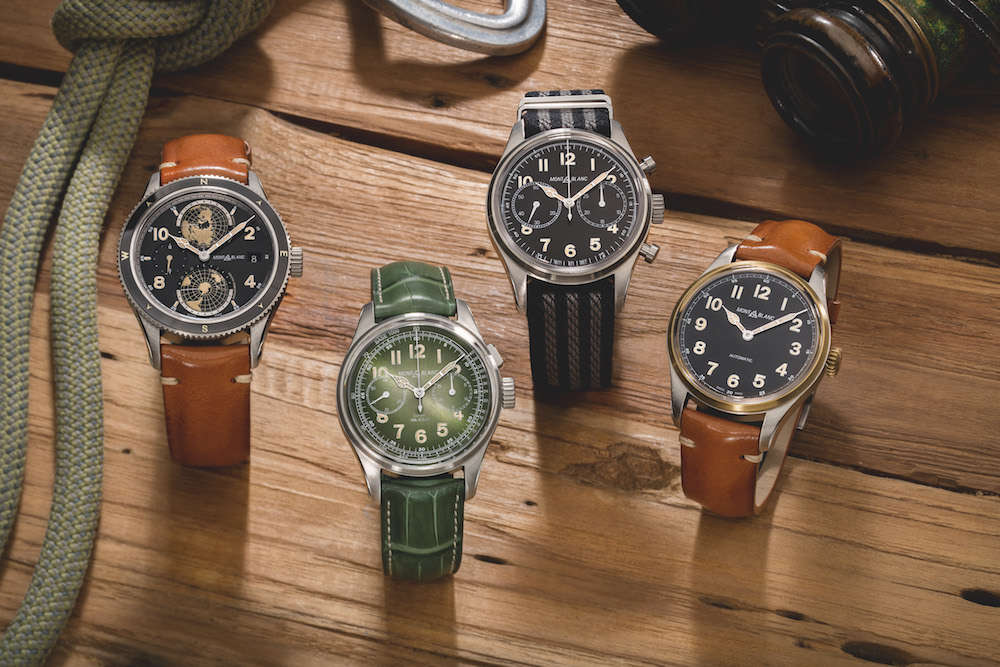
The Montblanc 1858 Monopusher Chronograph Limited Edition 100 pays tribute to the calibre 13.20. Reinforcing its vintage chronograph design, the 40mm stainless steel timepiece features an original smoked green dial and matching green alligator strap with beige stitching that comes from the Montblanc Pelletteria in Florence. Other signature Minerva elements are also incorporated into the watch, from the bi-compax dial with the small seconds counter at nine o’clock and a chronograph counter at 3 o’clock to the tachymeter scale on the outer part of the dial. More Minerva signatures can be found at the back. The calibre MB M13.21 is viewable through the sapphire case back. Look even closer and you’ll be able to spot the iconic Minerva arrow decorating the tip of the V-shaped chronograph bridge, a design that has been patented since 1912. The Montblanc 1858 Geosphere also pays tribute to Minerva, and is dedicated to the world’s Seven Summits mountaineering challenge as a nod to Montblanc’s DNA. The Seven Summits is a challenge in which climbers set out to ascend all the highest mountains on each continent and is recognised as the most difficult such quest worldwide. Therefore, the timepiece features a world-time complication on the two turning domed hemisphere globes on the dial, each of which makes a full turn every 24 hours. Both domes are surrounded by a scale with the 24 time zones, along with a day/night indication in contrasting colours. A second time zone display is located at nine o’clock, while a date window is located at three o’clock. Of course, the seven mountain summits are also indicated on the gloves with red dots. At the back of the case, the Mont Blanc mountain is engraved with two crossed ice pick-axes. Two versions are available, in stainless steel or a limited edition bronze case – and in an edition of 1,858 pieces to mark the founding year of the Minerva manufacture.
When asked what makes a good watch design, Cerrato replies that he likes to make a comparison between cooking and watchmaking. “What makes a good plate of food? The first thing would be good taste,” he says. “So the first thing about a good watch is its design. If it doesn’t look good, you don’t even have the time to stop and explain what’s inside. And design is about quality – it’s about proportions, colours, balance.”
Everything made at Minerva is also hand-finished, adds Cerrato. “It’s all handmade, made with the same stick of wood just in the forest next to the manufacture, found only in that region, with the people knowing how to do this particular polishing for 160 years. That’s human culture. That’s what luxury is about – and what watchmaking is about. People go back to this because there’s a beauty, a uniqueness and a value to it. It’s something we have to preserve.”


